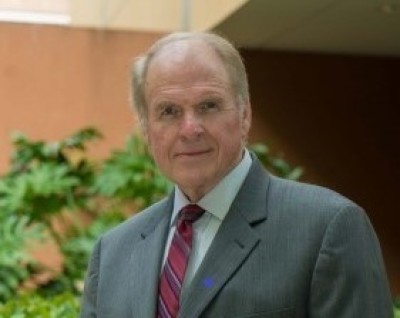John MacArthur’s religious freedom shocker and its troubling implications
John MacArthur is respected for many reasons, but his attitudes about both Charismatic Christians and the fight for religious freedom are not among them.
MacArthur’s book about Charismatic Christianity was titled, Charismatic Chaos. His recent remarks infer that he sees religious freedom as unworthy of defense.

MacArthur said, in a conference of church leaders: “I told our congregation a few weeks ago that I could never really concern myself with religious freedom ... I wouldn’t fight for religious freedom because I won’t fight for idolatry. Why would I fight for the devil to have as many false religions as possible and all of them to be available to everyone?”
If the State of California refused the right to exist of Charismatic churches or others not in lockstep with his theology, would MacArthur not fight for their freedom? Can he not see the implications for himself and his church?
As pastor of Grace Community Church, Sun Valley, California, MacArthur has taken a valiant stand against that state’s attempts to restrict and control religious gatherings during the pandemic. In that light, his opposition to fighting for religious freedom is a stark contradiction.
Pastor MacArthur doesn’t seem to realize the troubling implications if everyone took him seriously and there were no one fighting for religious freedom. Among the most serious of those outcomes would be the rise of a national church. Logically, If all others were outlawed, and only one permitted that functioned under state-mandated criteria, by default it would become the official, government-sanctioned “Church of America.”
This sounds extreme, but, again, the very suggestion that a much-published, highly visible Bible teacher and pastor would even toy with not supporting religious freedom is chilling.
One more time: This means that a leader who has challenged government threats against his church’s freedom apparently would not fight for religious freedom generally. MacArthur seems to be inferring that he would fight for the assembly of his church and others like it, but not those outside his doctrinal and ecclesiological fold that he might consider as practicing “idolatry.”
This conclusion may be extreme, but no less than MacArthur’s remarks. He is not merely indifferent about religious freedom but would not fight for it because in his view such liberty gives the devil opportunity.
So, again: In the absence of religious freedom, would one become the “national church” with all others treated as outsiders? Would there be a national church council to certify those that could exist and decertify those that could not? Would the government-sanctioned church be the core institution of a dominating “Christian nationalism” aligned with the state?
This is what MacArthur has so strongly criticized and resisted, and rightly so.
Without religious freedom government control would become even more intense. It would necessitate the formation of a licensing body made up of approved churches that would work in an alliance with the civil government to determine true churches from false.
The official church in collaboration with civil government would become the arbiter of theology and doctrine. Thus, the doctrine of the established “Church of America” would have to become the doctrine of all.
America’s founders knew history — including that of Colonists forced to leave places where a national church robbed them of freedom of worship. Thus, the Constitution’s authors were willing to fight for religious freedom and resist sanctioning a religious establishment.
Certainly, I’m not accusing MacArthur of pushing for an establishment of religion in the form of a national church. However, that is the de facto outcome in the absence of the religious freedom for which he says he would not fight.
The landscape becomes confusing and dangerous when we begin to pull away from the wisdom that produced the Constitution’s First Amendment.
Further, the authentic New Testament Church is to proclaim the Kingdom of God, but a national church usually centers on the preservation and advancement of the culture associated with its national or ethnic group.
MacArthur rightly resists encroachment of the culture upon his church. However, the survival of the national church hinges on the preservation of the culture that disenfranchises those not in alignment with the state church, deemed “idolatrous.”
Such a situation goes against the very character of God. He is not a rapist, forcing Himself on people. Rather, He gives us the remarkable freedom to receive or reject Him.
It would have been much simpler had there been only one tree in the Garden. However, there would have been no freedom. Liberty is authentic only when there is choice. Many a parent would agree that life would be easier if they could lock their teen-age children in a closet until maturity so the adolescents could not choose risky influences and behaviors, but that is not the way of love (except for an occasional and appropriate “grounding” or stay in the corner).
Love and the freedom it grants are messy indeed. However, our loving Creator-Father permitted it in Eden and does now. After all, it was He who allowed Lucifer entry to present his case to Adam and Eve so they could have freedom to choose.
The Omnipotent One makes Himself vulnerable to the potential of His children’s rebellion and the immense grief to His own great heart that goes with it. Nevertheless, He grants them liberty.
That is the way of authentic love.
As the cancel-culture is showing, freedom is what always winds up “cancelled.”
History reveals that when a church in a nation becomes the church of a nation there is disaster ultimately for the nation and the church.
Let freedom ring, even if it is risky and messy... and chaotic.
Wallace B. Henley’s fifty-year career has spanned newspaper journalism, government in both White House and Congress, the church, and academia. He is author or co-author of more than 20 books. He is a teaching pastor at Grace Church, the Woodlands, Texas.





























